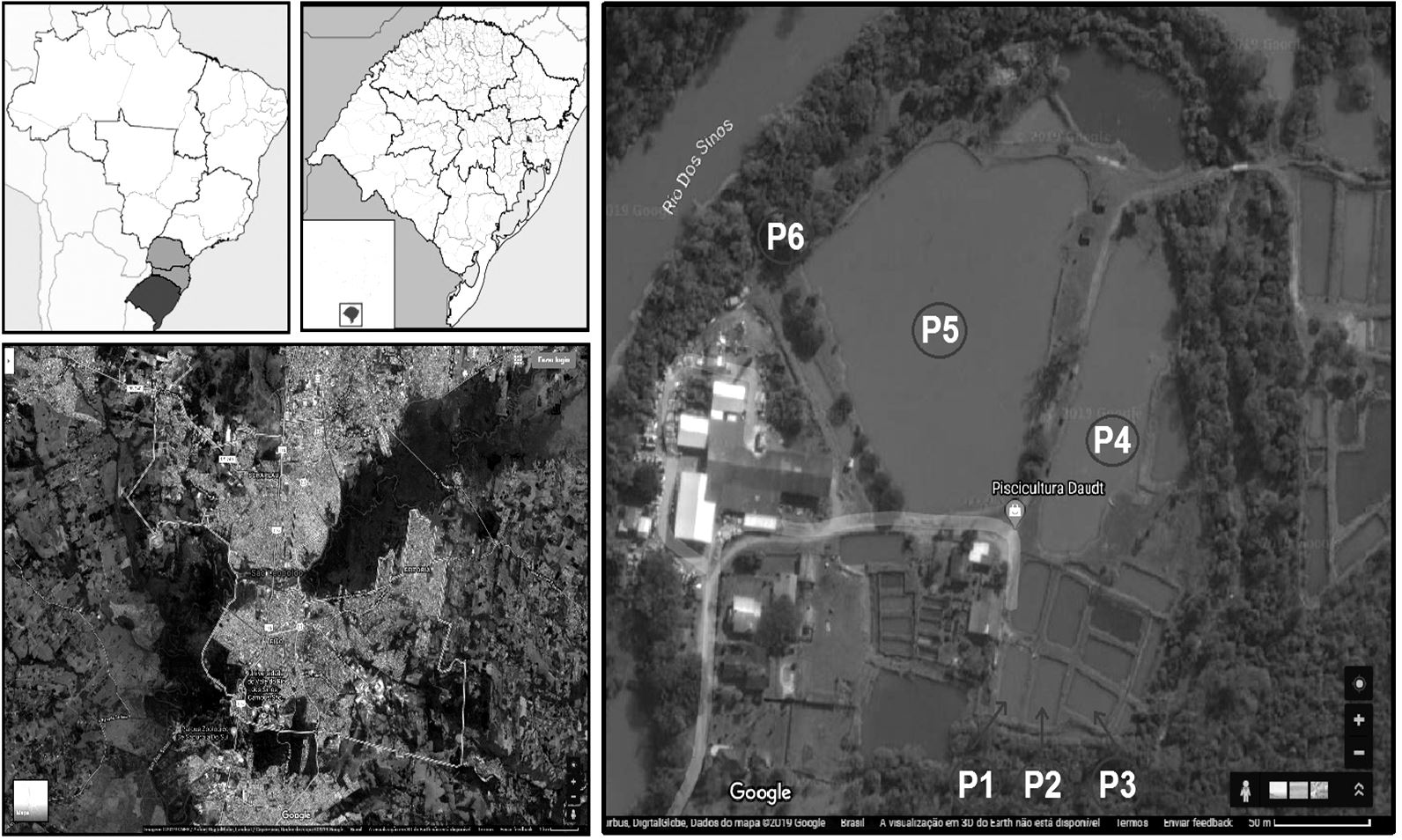Abstract
The aim of present study is to characterize the resistance and virulence profile of enterococci isolated from aquaculture excavated ponds and masonry tanks (6 samples) in southern Brazil. Samples were cultured in selective medium, 10 colonies were randomly selected from each sample, which were identified by MALDI-TOF and tested against 13 antimicrobials. The presence of resistance (tetL, tetM, tetS, ermB and msrC) and virulence (ace, esp, agg, cylA and gelE) genes were determined by PCR. A total of 79 enterococci were identified, and Entecococcus faecalis (44.3%) and E. casseliflavus (36.7%) were the most prevalent species isolated. Sixty-five strains (82.3%) were resistant to at least one of the antimicrobials tested, whereas 27 (34.2%) strains were multiresistant. The overall percentages of antimicrobial resistant isolates were: 58.2% to rifampicin, 40.5% to fluoroquinolones, 36.7% to erythromycin and 30.4% to tetracycline. The tetL and tetM genes were found in 57.7% of the tetracycline-resistant strains; and msrC in 31.01% of erythromycin-resistant strains. The most frequently detected virulence factors were ace and gelE genes. Although limited to a single farm, these data suggest that aquaculture may be a reservoir of resistant and virulent enterococci. This study is the first step towards enhancing our understandingof distribution, resistance and virulence profile in enterococci isolated from fish farming environments in the south Brazil.
Keywords:
Enterococcus sp.; continental aquaculture; microbial ecology; antimicrobial resistance; virulence genes

 Thumbnail
Thumbnail
